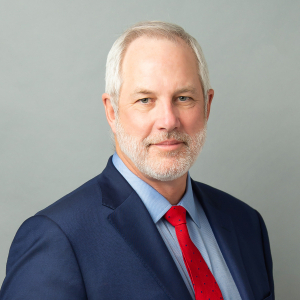
WASHINGTON, DC — In remarks this past Thursday before a virtual discussion of The Ripon Society and the Franklin Center, Dan Meyer, who serves as the Chief of Staff to the Republican Leader of the U.S. House of Representatives, expressed hope that Democrats will work with Republicans to strengthen America’s infrastructure and address some of the other key challenges facing the nation, instead of going it alone as they did on the most recent COVID relief bill.
“Republicans would have supported a package that was exclusively about COVID,” Meyer stated, referring to the $1.9 trillion relief plan that was approved on a party line vote last month. “But between the President and the Congressional leadership, the Democrats have gotten pretty good at what’s called a bait and switch. They present a proposal that they say is X, and then they add a lot of stuff onto it that doesn’t really qualify. Whatever X is, whether it’s COVID on the first package or infrastructure and what’s coming up.
“There’s certainly an opportunity to work with them if they were willing to limit it to what really is infrastructure. But they’re taking advantage of the opportunity to try to jam through more of an agenda that appeals, I think, to their base. And that’s generally what we’re dealing with right now on the floor.”
“The Democrats have gotten pretty good at what’s called a bait and switch.”
Meyer has served as Chief of Staff to House Republican Leader Kevin McCarthy since 2019. A 40-year veteran of the Washington policy and political arena, he previously served as the top Congressional liaison in the Administration of President George W. Bush. Earlier in his career, Meyer served as the Chief of Staff to then-Minority Whip Newt Gingrich, where he helped draft the Contract with America that helped Republicans win control of the House in 1994. He is now working to repeat this feat as McCarthy’s top aide, where he is leading the effort to communicate the Republican message and counter the Democrat agenda.
With regard to this agenda, Meyer noted that Democrats passed a rule at the beginning of the 117th Congress that allowed them to bring any bill to the floor without committee consideration by April 1 if it had passed in the 116th Congress. He further noted that he expected Democrats to continue to bring a number of bills up for a vote that passed the House in the last Congress. These bills, he said, could address such issues as paycheck fairness, workplace violence prevention for healthcare and social service workers, and making the District of Columbia a state.
“There’s also an interest in trying to deal with some of the issues revolving around China,” Meyer added. “In the last Congress, Leader McCarthy appointed members on our side to a China Task Force. It was intended to be a bipartisan task force, and it got right to the point where we were working with Pelosi and Hoyer’s offices to name the members who were going to serve on the panel. But the Democrats pulled out of it, I think primarily because they were having difficulty picking and choosing who’s going to serve on their side.
“We went forward and actually expanded it pretty dramatically to be a 15-member task force that really did some good work and produced a substantive report. Most of the recommendations for legislative action are bipartisan proposals. There’s a lot of opportunity with respect to China. So, we’ll see. Senator Schumer has talked about a China bill. We’ll see if they’re willing to participate on a bipartisan basis. We’re hoping that that will be the case.”
The Ripon Society is a public policy organization that was founded in 1962 and takes its name from the town where the Republican Party was born in 1854 – Ripon, Wisconsin. One of the main goals of The Ripon Society is to promote the ideas and principles that have made America great and contributed to the GOP’s success. These ideas include keeping our nation secure, keeping taxes low and having a federal government that is smaller, smarter and more accountable to the people.



